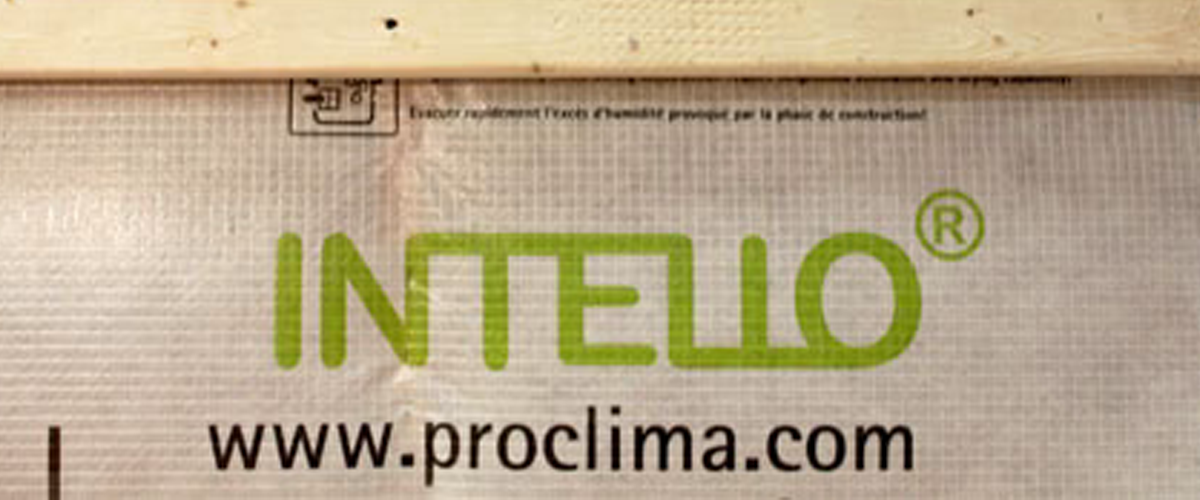
INTELLO Plus is a reinforced intelligent vapor retarder that has been used in the tightest buildings in Europe. There is a growing number of buildings that have successfully incorporated it in their air-tightness approach (combined with Pro Clima tapes and gaskets) that have tested (far) below 0.6ACH50 needed for Passive House certification. We had it tested according to ASTM E2178, which the IECC 2012 C402.4.1.2 Air barrier compliance options uses as the standard for airtight materials. It requires an air permanence less than or equal to 0.02 L/(s·m2) @ 75 Pa (0.004 cfm/ft2) for 3 samples is deemed sufficiently airtight. The test results were an impressive 0.00025 L/(s·m2) (0.00005cfm/ft2) - surpassing the ASTM requirement by a factor of 80.

Keeping the airtight layer continuous - wrapping beams at installation keeps them "inside" and the enclosure airtight[/caption]
Of course a tight material is the basis of any airtight assembly. However, one shouldn't forget that the best air-tightness results are achieved with a simple, complete, uninterrupted airtight layer and air-tightness system. It is easiest done on the inside, where you can find and fix mistakes and use accesories when you make holes in your airbarrier. If you do this with drywall - it will only be minutes before holes are made by the home-owner or the connections to floors/corners will crack. A protected airtight layer, behind a service cavity is where it is at for long term performance.
Second of all make sure that your insulation is protected/sealed not just on 1 side, but on all six sides - as per Joe Lstiburek at this years Building Science camp: "Air-sealing both sides of the wall is more important than the fluffing of the insulation in the cavity".



